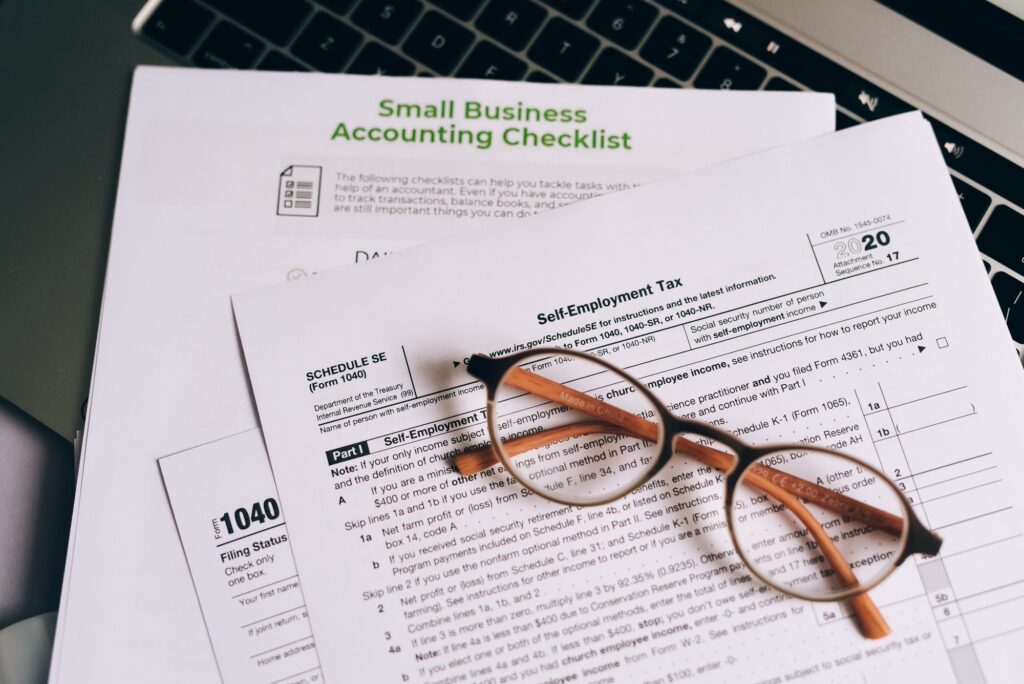Preparing Taxes for Small Businesses: A Comprehensive Guide for Entrepreneurs
As a small business owner, preparing taxes can be a daunting task, especially when you’re trying to keep up with the day-to-day operations of your business. However, it’s essential to stay on top of your taxes to avoid any legal consequences and ensure the financial health of your business. In this comprehensive guide, we’ll cover everything you need to know to prepare your small business taxes with ease and confidence.

- Know Your Tax Obligations
The first step in preparing your small business taxes is to understand what your tax obligations are. This includes determining what taxes your business is required to pay, such as income tax, sales tax, property tax, and payroll taxes. You’ll also need to determine the due dates for each type of tax and make sure you have all the necessary forms and information.
For example, if your small business is a sole proprietorship or partnership, you’ll need to file a personal tax return (Form 1040) and report your business income on Schedule C (Form 1040). If your business is an LLC, S Corporation, or C Corporation, you’ll need to file a corporate tax return (Form 1120, Form 1120S, or Form 1120-C) and pay corporate income tax.
It’s important to note that you may also be required to pay state and local taxes, such as sales tax and property tax. To determine your tax obligations, check with your state’s tax authority or consult with a tax professional.
- Keep Accurate Records
One of the most important things you can do to prepare your small business taxes is to keep accurate records. This includes keeping track of all your income and expenses, as well as any capital investments you’ve made in your business. Keeping accurate records will make it easier for you to calculate your taxable income and ensure that you don’t miss any deductions or credits.
To keep accurate records, consider using a small business accounting software, such as QuickBooks or Xero, or hiring a bookkeeper to help you. Make sure to keep receipts and invoices for all business expenses, as well as any other documentation that supports your tax deductions.
- Take Advantage of Deductions and Credits
As a small business owner, you may be eligible for various deductions and credits that can lower your taxable income and reduce your tax bill. Some common deductions for small businesses include business expenses such as rent (if you rent an office or desk), supplies, and equipment. There are also various tax credits available for small businesses, such as the Research and Development Tax Credit and the Work Opportunity Tax Credit.
It’s important to note that to claim deductions and credits, you must have documentation to support your expenses. Keep receipts and invoices for all business expenses, and make sure to keep track of the date, purpose, and amount of each expense.
- Use Tax Preparation Software or Hire a Professional
Preparing your small business taxes can be a complex task, and it’s often helpful to use tax preparation software or hire a professional to help you. Tax preparation software can guide you through the process and ensure that you don’t miss any important deductions or credits. If you’re not comfortable using software or
prefer a more hands-on approach, consider hiring a tax professional to help you prepare your taxes. They can provide valuable insights and advice and ensure that your taxes are filed correctly.
When choosing a tax preparation software or professional, look for one that specializes in small business taxes and has experience working with businesses like yours. You may also want to consider the cost and the level of support offered by the software or professional.
- Create a Tax Checklist
To help you stay organized and on track, create a tax checklist that outlines all the steps you need to take to prepare your taxes. This can include tasks such as gathering all your financial records, calculating your taxable income, and determining your tax obligations. A tax checklist can also help you keep track of deadlines and ensure that you don’t miss any important steps.
Here’s a sample tax checklist for small business owners:
- Gather all financial records, including income and expense statements, receipts, invoices, and bank statements
- Determine your tax obligations and due dates
- Calculate your taxable income
- Determine if you’re eligible for any deductions or credits
- Use tax preparation software or hire a professional to help you prepare your taxes
- File your taxes and make any required payments
- Keep a copy of your tax return and supporting documents for at least three years
- Stay Up-to-Date on Tax Laws and Regulations
Tax laws and regulations are constantly changing, so it’s important to stay up-to-date on any changes that may affect your small business. This can include changes to tax rates, deductions, and credits, as well as new tax laws and regulations. Keeping up-to-date on tax changes can help you make informed decisions and avoid any legal consequences.
To stay up-to-date on tax laws and regulations, sign up for newsletters and alerts from the IRS, your state’s tax authority, and any professional organizations you belong to. You can also attend tax workshops and seminars to learn about the latest tax changes and how they may affect your business.
- Use Tax Planning to Your Advantage
Finally, it’s important to use tax planning to your advantage. Tax planning is the process of organizing your financial affairs in a way that minimizes your tax liability. This can include deferring income to a later tax year, maximizing deductions and credits, and structuring your business in a tax-efficient manner. By planning ahead and taking advantage of tax-saving strategies, you can reduce your tax bill and improve the financial health of your business.
For example, if you’re expecting a large bonus or other significant income in the coming year, you may want to defer that income to a later tax year to reduce your taxable income. You may also want to consider restructuring your business as an S Corporation or LLC to take advantage of the tax benefits offered by these business structures.
Preparing Taxes for Small Businesses
Preparing your small business taxes can be a complex task, but it’s essential to ensure the financial health of your business and avoid any legal consequences. By following these tips and using the resources available to you, you can prepare your small business taxes with ease and confidence.
Remember to keep accurate records, take advantage of deductions and credits, and stay up-to-date on tax laws and regulations. You can also use tax preparation software or hire a professional to help you, and create a tax checklist to stay organized. And finally, use tax planning to your advantage to minimize your tax liability and improve the financial health of your business.
If you’re looking for additional resources to help you prepare your small business taxes, consider the following:
- IRS Small Business and Self-Employed Tax Center: This site provides a wealth of information on tax laws and regulations, as well as forms and publications, to help you prepare your taxes.
- Small Business Administration (SBA) Tax Guide: The SBA provides a comprehensive guide to help small business owners understand their tax obligations and prepare their taxes.
- Tax Preparation Apps: There are many tax preparation apps available that can help you prepare your small business taxes, such as TurboTax, H&R Block, and TaxAct.
- Local Small Business Development Centers: Many local small business development centers offer tax preparation and planning services to help small business owners prepare their taxes.
- Professional Organizations: Consider joining a professional organization, such as the National Association of Tax Professionals or the National Society of Accountants, to stay up-to-date on tax laws and regulations and connect with other small business owners and tax professionals.
By following these tips and using these resources, you can prepare your small business taxes with ease and confidence and ensure the financial health of your business. Good luck!
Disclaimer: The information provided in this blog post is for informational purposes only and should not be considered tax advice. The author of this post is not a tax professional and the information provided should not be used as a substitute for professional tax advice. It is recommended that you consult with a licensed tax professional or the appropriate government agency for specific tax advice and guidance.

